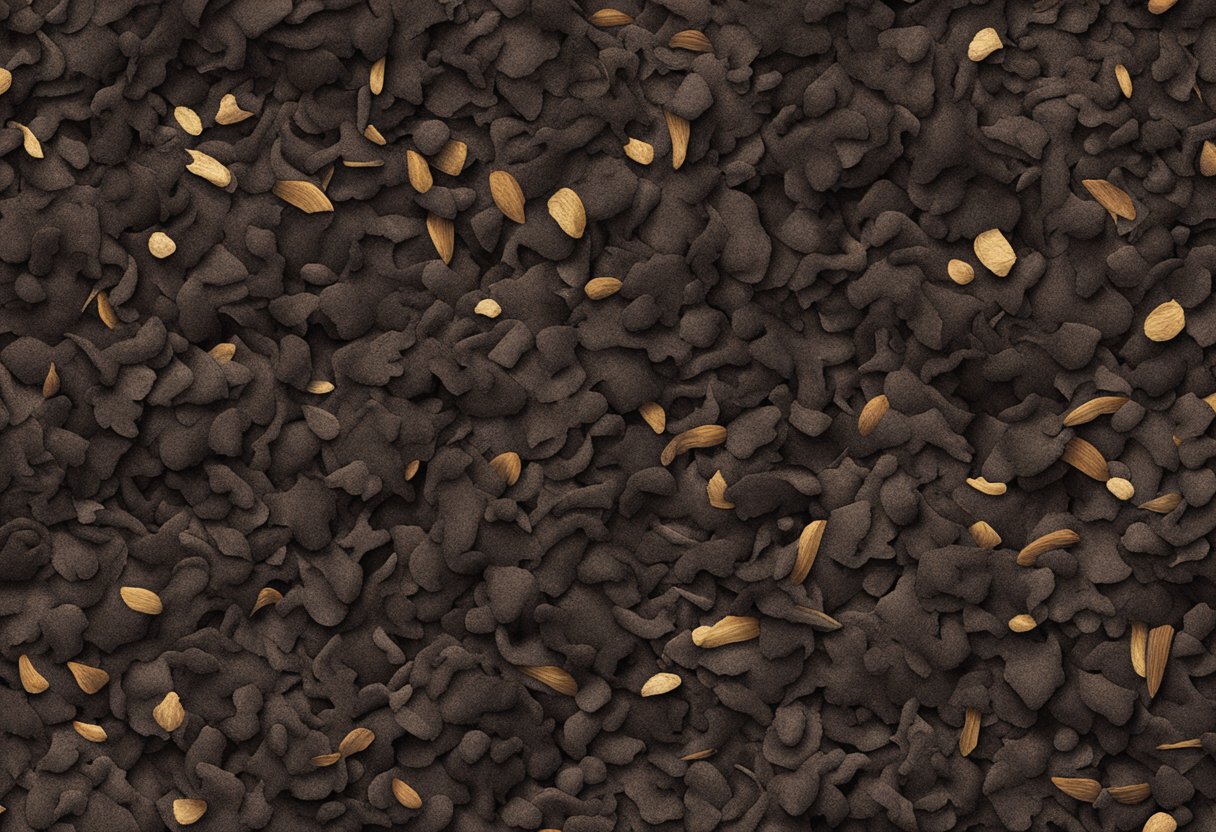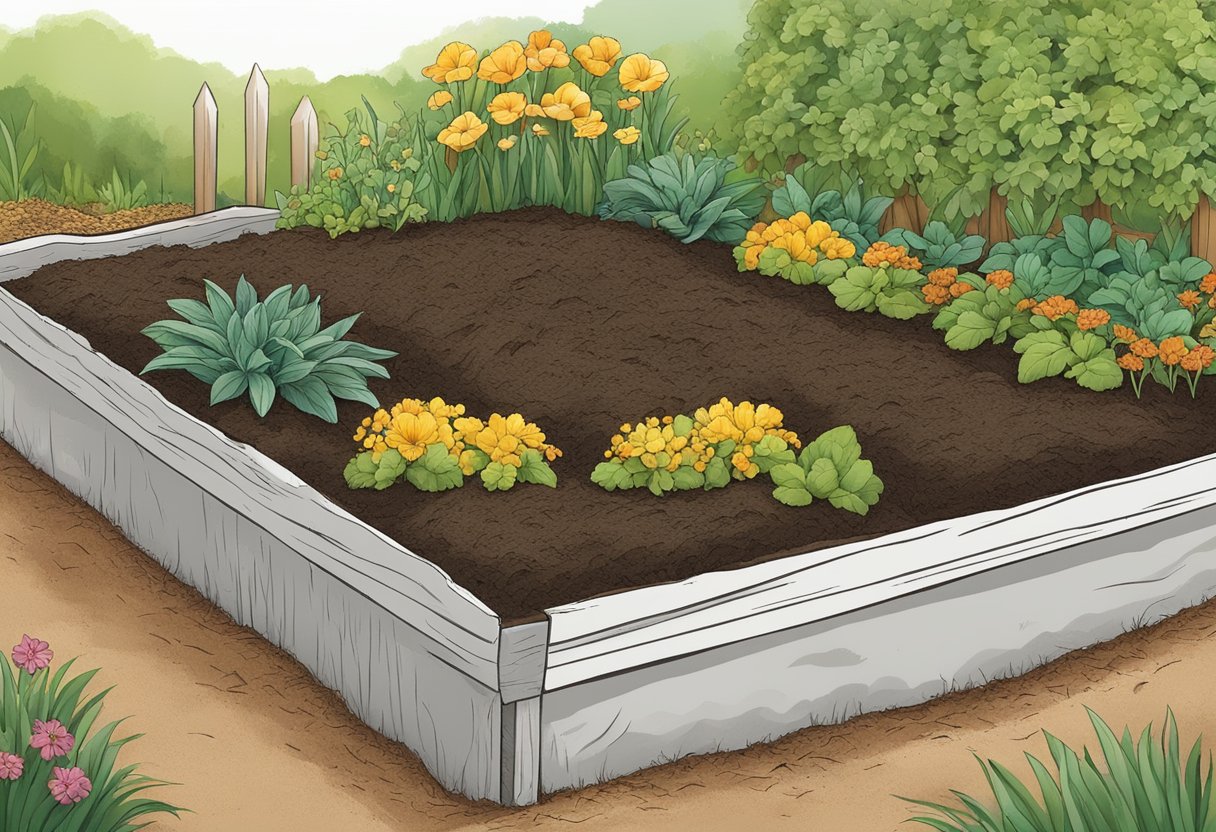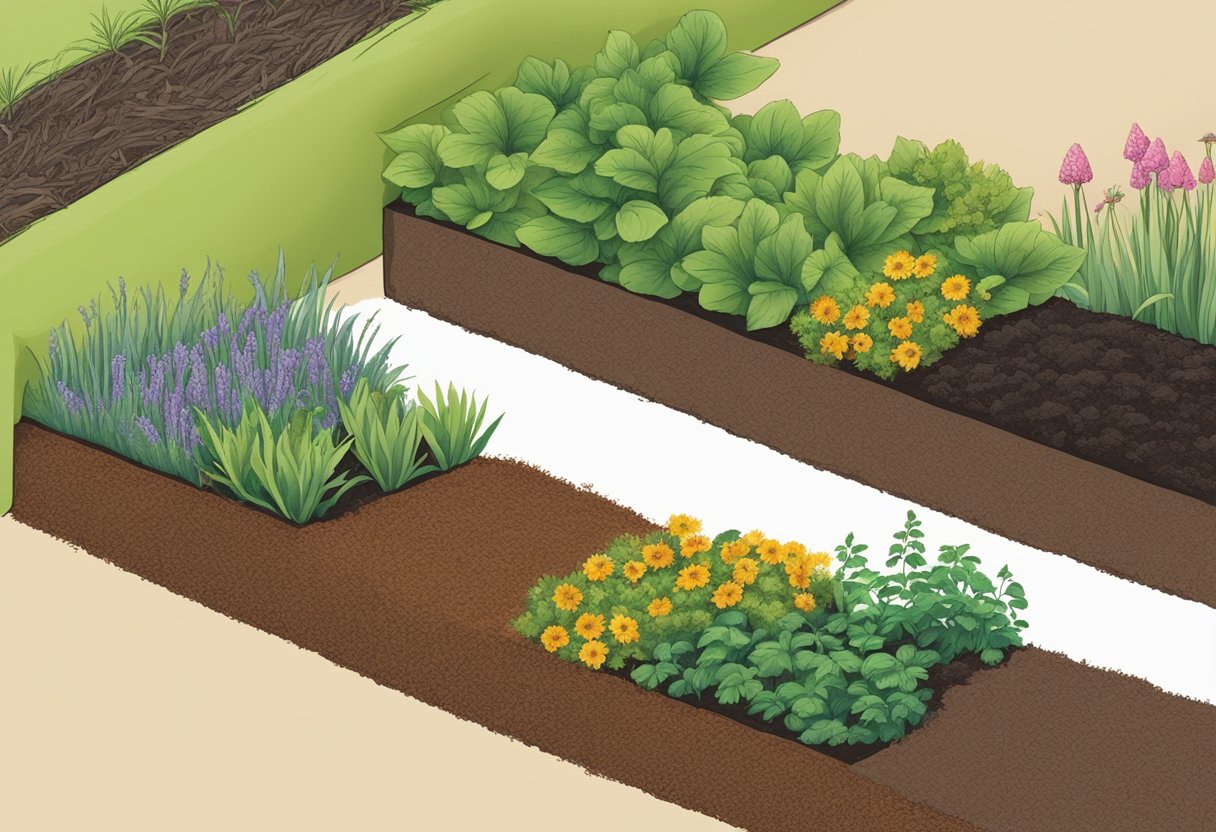Understanding the roles and differences between compost and mulch is foundational to effective gardening practices. Compost is derived from the decomposition of organic matter, such as kitchen scraps and leaves. It enriches the soil by improving its structure, fertility, and aiding moisture retention. As we integrate it into the soil, it enhances the biological ecosystem within it, promoting healthier plant growth.

Mulch, on the other hand, serves a protective function. We lay it on top of the soil to conserve moisture, suppress weeds, and moderate soil temperatures. Organic mulches, one of which can be compost, slowly break down to contribute to soil fertility, unlike inorganic alternatives such as stones or plastic which do not enrich the soil.
Both compost and mulch are vital to our gardening endeavors, yet they serve distinct purposes. Compost acts primarily as a soil amendment, while mulch is used as a protective layer. Knowing when and how to use each can have a profound impact on the health and yield of our gardens.
Understanding Mulch and Compost

In this section, we’ll explore the distinctive roles of mulch and compost in gardening. Our focus will center on mulch’s protective qualities and compost’s nutritional benefits for soil health.
Defining Mulch
Mulch is a protective layer spread over the surface of soil. It’s typically made from organic materials, such as:
- Leaves
- Straw
- Wood chips
- Bark
The primary purpose of mulch is to maintain soil moisture, regulate temperature, and suppress weed growth. It acts as an insulating blanket that keeps soil temperatures consistent, which is essential for plant root development. By limiting evaporation, mulch ensures that water stays in the soil longer, benefiting the plants.
Overview of Compost
Compost, on the other hand, is decomposed organic matter. This rich substance can include:
- Kitchen scraps
- Garden waste
- Manure
Unlike mulch, compost is mixed into the soil where it improves soil structure and adds essential nutrients. As it breaks down, it provides a steady supply of nitrogen, phosphorus, and potassium, which are vital for plant growth. Compost also enhances the soil’s ability to retain water and supports beneficial microorganisms, leading to robust plant health. We use compost to invigorate the garden’s soil, ensuring plants have the food they need to flourish.
Practical Applications in Gardening

In our gardens, both mulch and compost serve crucial but distinguishable roles to improve soil health and bolster plant growth.
Mulching Techniques
Mulching involves applying a layer to the soil surface, which can be composed of diverse materials. Organic mulch, which includes straw, wood chips, or leaves, adds nutrients as it breaks down. Inorganic mulch, like stones or black plastic, effectively retains soil moisture but doesn’t enhance soil fertility. Here’s how we mulch:
- Selection: Choose the type of mulch based on our plants’ needs, local climate, and aesthetic preferences.
- Timing: Apply mulch in spring to warm soils or in autumn to protect against cold.
- Application: Lay a 2 to 3-inch layer around plants, avoiding direct contact with stems to prevent rot.
Composting Methods
We use composting to turn kitchen scraps and garden waste into a nutrient-rich soil amendment. The composting process allows for the creation of an environment where beneficial organisms can thrive. Effective methods we follow include:
- Layering: Alternate green (nitrogen-rich) and brown (carbon-rich) materials.
- Monitoring: Check moisture levels to maintain adequate soil moisture, which shouldn’t be sopping wet or bone dry.
- Turning: Regularly turn the pile to oxygenate and speed up decomposition.
Benefits for Soil and Plants
Both composting and mulching contribute significant benefits:
| Benefit | Mulch | Compost |
|---|---|---|
| Soil Moisture | Improves moisture retention | Moderates soil moisture |
| Soil Health | Can suppress weed growth | Introduces beneficial organisms |
| Nutrient Delivery | Gradual as it decomposes | Immediate, as it’s already broken down |
| Pest Suppression | Certain types deter pests | Can help to prevent disease spread |
We find that these practices, when applied properly, not only conserve water and combat weeds, but also sustain a healthy garden environment that encourages vibrant plant growth and improves soil quality. As a bonus, the activity of earthworms is often increased, further enhancing soil health and fertility.